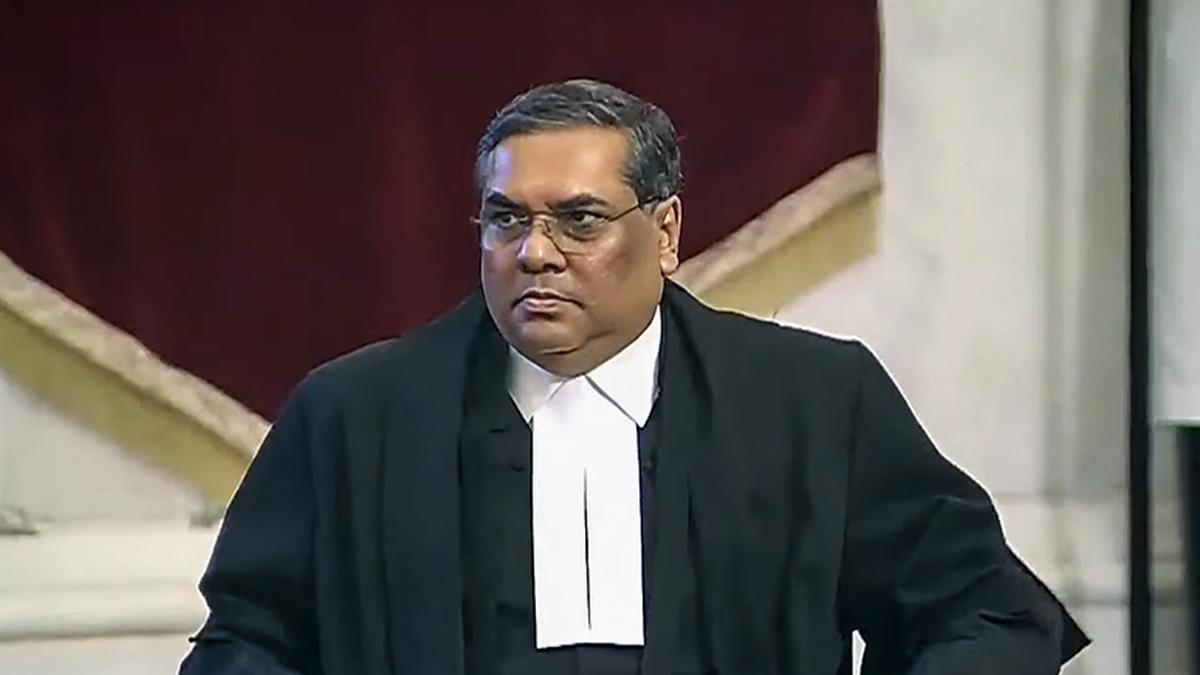 |
|
The Indian judicial system, grappling with a significant backlog of cases, recently held a national conference aimed at addressing this critical issue. Chief Justice of India Sanjiv Khanna led the initiative, bringing together judges from the Supreme Court, High Courts, and district courts across the country. The conference served as a platform for open dialogue and collaborative strategy development to tackle the pervasive problem of case pendency. The discussions ranged from identifying bottlenecks in the system to exploring innovative solutions using technology. The gravity of the situation is underscored by the fact that the conference took place the same week the Supreme Court relaxed conditions for appointing ad hoc judges to High Courts, a move explicitly designed to alleviate the pressure on the already overburdened system. This underlines the urgency with which the judiciary is addressing the backlog crisis.
A key focus of the conference was the exploration of methods to streamline judicial processes and enhance efficiency. This involved identifying specific case types contributing most significantly to the backlog, analyzing the reasons for delays in case disposal, and devising strategies for reducing pendency at all levels of the court system. The need for a uniform case categorization across different courts was also deliberated upon, a move that could significantly improve data analysis and resource allocation. The integration of technology into judicial processes was another significant theme; judges discussed leveraging technology to optimize judicial workflows, potentially through the use of case management systems, electronic filing, and virtual hearings. This would not only increase efficiency but also improve accessibility and transparency in the judicial system.
The conference also addressed the critical issue of judicial recruitment and capacity building. A dedicated session explored measures to expedite the recruitment of judicial officers and court staff in district courts, recognizing that a sufficient number of well-trained personnel is essential for efficient case handling. The discussions included strategies for the continuous recruitment and empanelment of public prosecutors and legal aid counsels, reflecting the judiciary's commitment to ensuring access to justice for all. The creation of permanent IT and data cadres in High Courts and district courts was also proposed, highlighting the importance of investing in technological infrastructure and expertise. This would facilitate the effective implementation of technology-driven solutions and ensure the long-term sustainability of improved judicial processes.
Beyond recruitment, the conference addressed crucial aspects of judicial officer career progression and performance evaluation. The need for a transparent and objective transfer policy for judicial officers was highlighted, aiming to foster fairness and prevent potential biases in placements. Furthermore, the discussion extended to enhancing the objectivity of the process for recommending suitable candidates from the district judiciary for elevation to High Courts. This emphasis on merit-based promotions and transparent procedures aims to cultivate a highly skilled and motivated judiciary. The conference also focused on mentoring programs for judicial officers, the development of a common curriculum for training and capacity building, and measures to ensure accountability among judicial officers and court staff. These initiatives underscore the judiciary's commitment to continuous improvement and professional development within the judicial workforce.
In conclusion, the national conference represents a significant step towards addressing the challenges facing the Indian judiciary. The discussions held, encompassing diverse aspects from case management and technology adoption to recruitment and professional development, demonstrate a comprehensive approach to tackling the issue of case backlog. The collaborative spirit displayed by the participants, encompassing judges from various levels of the judiciary, along with senior bureaucrats, underscores the collective commitment to reforming and strengthening the Indian judicial system. The implementation of the strategies and recommendations emerging from this conference will be crucial in determining the long-term success of these efforts, ultimately aiming to ensure faster and more efficient justice delivery for all citizens of India.
Source: CJI, SC judges reach out to State, district judiciary to hear out challenges
